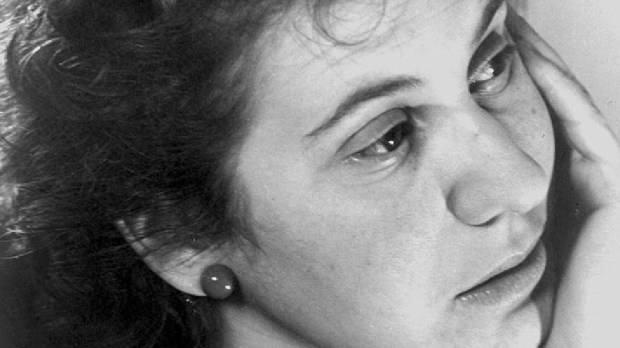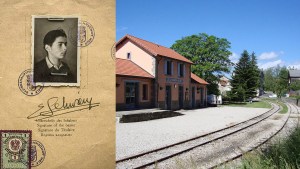Killed in Auschwitz in 1943 at the age of 29, Etty Hillesum achieved striking spiritual growth in the last three years of her life. Her admirable example is here to inspire us to pursue our life of prayer.
Since the publication of her diary and letters in the 1980’s, Etty Hillesum never seizes to provoke our admiration and has become a shining example in out times. The Dominican monk Yves Beriault explains why and how this young Jewish woman from the Netherlands can teach us to pray.
How did Etty Hillesum, a young Jewish agnostic, discover God and this communion with Him, which is prayer?
Etty was an intelligent, cultured “modern” young woman. She felt an existential emptiness so profound, she was tempted to end it all, to escape this inner reality that was becoming unbearable all the more so, because the events independent of her were taking a terrible turn. She became aware of her inability to love as she would have liked, of the conflicts with her parents – especially her mother. She desired to be rid of selfishness, the lack of direction, that frightened and depressed her, but she didn’t know how. So, she decided to get help. And it was at the request of her therapist that she began to meditate for half an hour every morning. Julius Spier encouraged her to explore this inner life that preoccupied her, although at the time it was the source of her anxieties and fears.
Were these meditations beneficial to her?
Yes, the meditation led her to try things out, to experience them, to accept the life around her instead of analyzing and judging it. These moments became a sort of daily gymnastic, allowing her to heal. She called them her “time of peace.”
But this was not a prayer yet?
Not yet, but this acceptance of life would progressively turn into acceptance of God who is Life. In her own words, the goal of this exercise was “to let a little bit of God inside her.” Etty had doubted her ability to love, and there she would taste love that withdrew her from her shell and gradually opened her eyes on the suffering of the world. This transformation was a real conversion: Etty gradually abandoned herself to God working in her, to this new intimacy that in a way saved her from herself and from the deadly downward spiral.
Did prayer become indispensable for her?
It became vital. It was the revitalization, from which she constantly drew her strength: “It is as if something inside me is concentrated in a continual prayer, the praying inside me doesn’t stop, even when I am joking and laughing.” A prayer of the heart, intense and continual, made her eagerly seek God in the momentary respites from the tragedy that was playing out all around her. It was then that Etty would find the courage and the inner peace that allowed her to confront the upheavals, the likes of which Europe had never seen before.
In what aspects her prayer speaks to Christians?
Etty was a non-practicing Jew. She would never cite the name of Christ even if we can assume that she was animated by Him. Still, we can find in her prayer all the accents and the various “modes” of Christian prayer. What touches me the most is to see that the prayer rose from within her because she acknowledged her simplicity: she was aware of her own vulnerability, the insufficiency of her capacities. This is why she placed herself in the hands of God.
Did she pray at all times and everywhere?
Just about anywhere. She made a mention of this after she’d heard the talk of a group of Carmelite friars and nuns, including Edith Stein, a German Jew converted to Catholicism, arriving in Westerbork. Upon hearing of the religious wandering around barracks and reciting their rosaries, she wrote: “And isn’t it true that we can pray anywhere – in a barrack made of wooden planks as well as in a monastery made of stone, and more generally in any place on Earth, where it pleases God, in these troubled times, when his creatures are destroyed?”
Deep inside, it was as though Etty did not recite prayers, she became a prayer …
Exactly. We can say she prayed with her every breath! And despite the upheavals, joy became one of the essential components of this prayer: “I believe life is beautiful and I feel free. Inside me the heavens are expanding, vast like the firmament above me.” By the time Etty left the camp in Westerbork for Auschwitz, she became a mystic, drunk on God. A “hallelujah” continually rising from her lips was like a chorus chant. It was this keen awareness that God is with her and that she is with Him until her final sacrifice, no matter how terrifying the darkness she was entering into.
Interview by Luc Adrian


